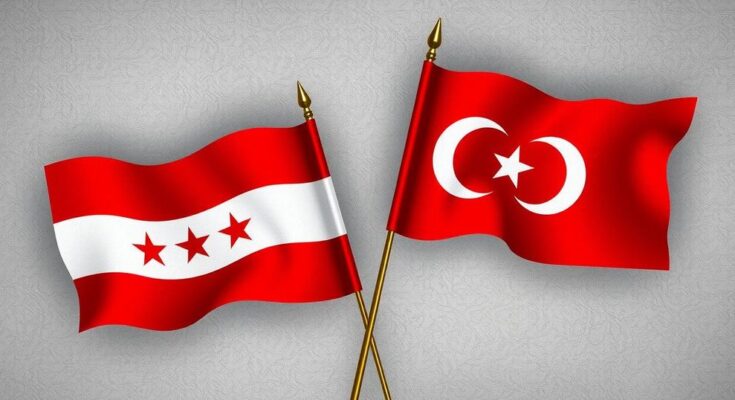Ahmed al-Sharaa, leader of HTS, suggests that Syria will establish strategic relations with Turkey, emphasizing the importance of Turkey’s role in reconstructing Syria and improving economic ties. He appreciates Turkey’s treatment of Syrian refugees while asserting the movement will not interfere in other nations’ issues, focusing on benefiting its own people.
The leader of Hay’at Tahrir al-Sham (HTS), Ahmed al-Sharaa, known by his nom de guerre Abu Mohammed Jolani, has announced that Syria is poised to establish strategic relations with Turkey. In an interview with the Turkish newspaper Yeni Safak, Sharaa expressed gratitude towards Turkey for its humane treatment of Syrian refugees. He emphasized the importance of strategic and commercial relationships between the two nations, highlighting Turkey’s role in the reconstruction of a new Syrian state and its potential contributions to Syria’s economic development.
Sharaa remarked that the success of the Syrian revolution not only benefits the Syrian populace but also resonates with the Turkish people, stating, “This victory is not only the victory of the Syrian people but also of the Turkish people.” He recognized Turkey’s hosting of approximately three million Syrian refugees, noting that countless others have sought refuge there in the past. Additionally, he addressed the necessity of the new Syrian government engaging with all regional countries, particularly in the Gulf region, where apprehensions regarding Islamic-oriented movements predominate.
In response to questions about potentially spreading the revolution beyond Syria, Sharaa clarified that his movement is not inclined to interfere with other nations’ issues, asserting, “We have no intention of taking on tasks beyond our capacity, such as solving all the problems of the Islamic world, which would divert us from our primary responsibility to our own people.” He reaffirmed the movement’s commitment to fostering beneficial international relations for the Syrian nation.
In recent years, Syria has faced significant turmoil, leading to an outpouring of refugees into neighboring countries, particularly Turkey, which now houses nearly three million Syrians. The HTS, an influential rebel group, plays a crucial role in the ongoing conflict, and its leadership has been exploring new political avenues to stabilize and reconstruct the country. The historical context of Turkey’s involvement in the Syrian conflict and its implications for bilateral relations is essential to understanding Sharaa’s comments regarding the future cooperation between Syria and Turkey.
In conclusion, the statements made by HTS leader Ahmed al-Sharaa indicate a potential shift in Syrian-Turkish relations, aiming at development and mutual benefit. Sharaa’s expressions of gratitude towards Turkey for its support of refugees underscore the importance of diplomatic and commercial ties that may pave the way for Syria’s reconstruction. His remarks also illustrate a desire for the HTS to focus on its responsibilities towards the Syrian populace while maintaining respect for the sovereignty of other nations.
Original Source: www.middleeasteye.net




